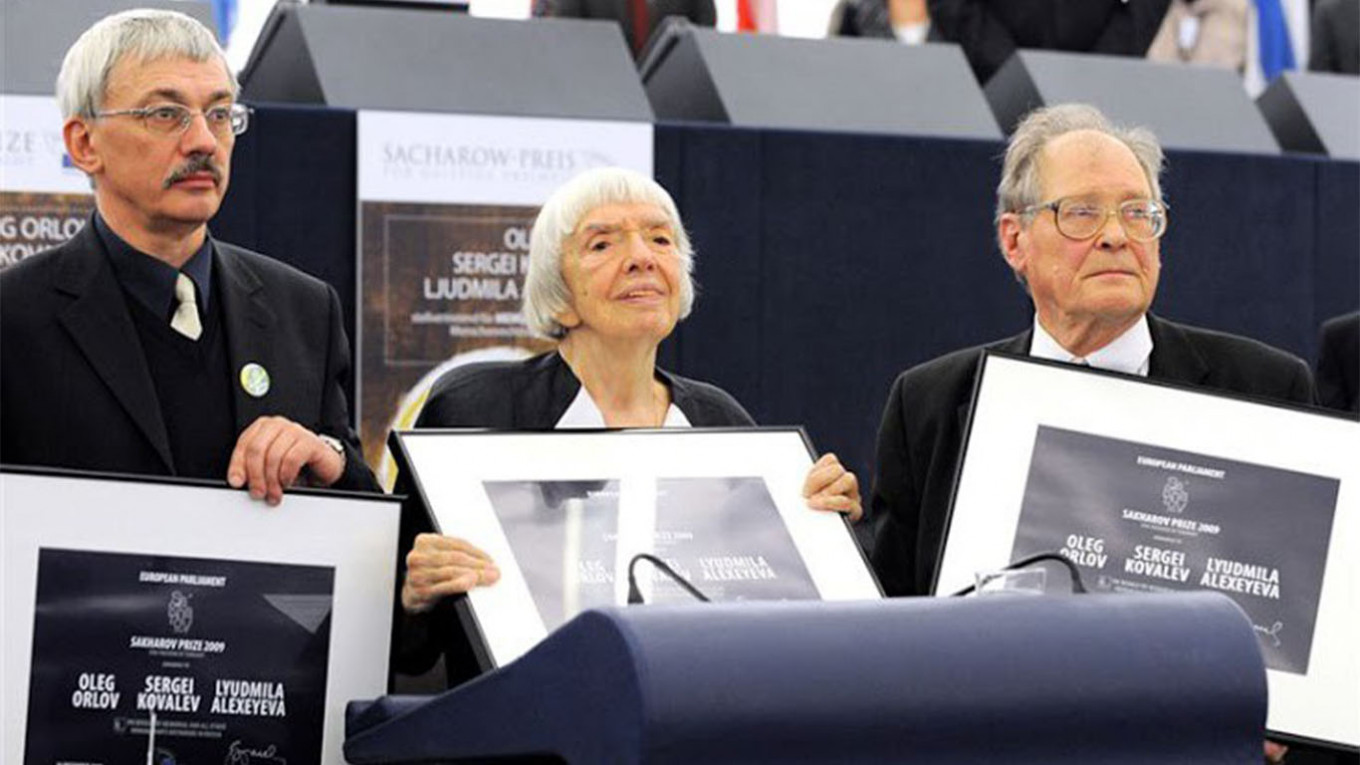
On this day in 1976, a group of Russian dissidents led by a Soviet physicist Yuri Orlov announced the foundation of the Moscow Helsinki Group. Forty four years later, it still exists, the oldest working human rights organization in Russia.
Through all these years the group has been monitoring Russia’s implementation of the Helsinki Accords — agreements between the leaders of the Soviet Union, U.S. and all European countries except Albania that were signed in August 1975 and obligated the countries to comply with international human rights standards.
After its foundation, the group began gathering information from the Soviet citizens on human rights violations: from the freedom to leave and return to the country, to the rights of political prisoners. The group started to publicize these cases by sending reports to foreign media and the governments of the 35 signatory states.
“Our letters were intercepted, they didn’t reach the embassies. We started asking foreign journalists who worked in the U.S.S.R. to send this information to newspapers and the governments of their countries. And they did,” said Lyudmila Alexeyeva, who led the group after returning from emigration in 1996 until her death in 2018.
In 1982, after most of the group members were arrested or forced to emigrate, the work of the group ceased, but it started up again seven years later.
Today, during the coronavirus pandemic, the Moscow Helsinki Group continues to protect Russians’ human rights. It has sent an initiative to the State Duma, proposing to transfer people in jails pending trial to house arrest; called for amnesty of prisoners amid the inevitable spread of Covid-19 in correctional facilities; and urged state protection for journalist Elena Milashina, who published investigative articles about coronavirus in Chechnya and received death threats from its leader, Ramzan Kadyrov.






